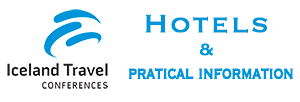The corporate governance SIG welcomes studies exploring all aspects of antecedents and consequences - of corporate governance and boards of directors. Contributions adopting a wide set of theoretical lenses and research methods are strongly encouraged as well as studies analysing corporate governance in different types of enterprises and institutional contexts, including different countries and regional cultures.
SIG OFFICERS:
Mariateresa Torchia (International University of Monaco, Groupe INSEEC) This email address is being protected from spambots. You need JavaScript enabled to view it. SIG Chair
Heike Mensi-Klarbach (WU Vienna, Austria) This email address is being protected from spambots. You need JavaScript enabled to view it. SIG Chair-Elect
Nikolaos Kavadis (University Carlos III of Madrid, Spain) This email address is being protected from spambots. You need JavaScript enabled to view it. SIG Programme Chair
Daniel Yar Hamidi (Boras University, Sweden) This email address is being protected from spambots. You need JavaScript enabled to view it. SIG Programme Chair-Elect
Dennis B. Veltrop (University of Groningen, Netherlands) This email address is being protected from spambots. You need JavaScript enabled to view it. Communications Officer
GT 02_00 Corporate Governance General Track
Track Description
This is a general corporate governance track within the Corporate Governance SIG which invites contributions from all areas related to corporate governance that are not explicitly covered by other tracks within the SIG. We welcome studies examining the antecedents and processes of governance as well as its consequences, for example, studies examining ownership structures, corporate social responsibility, external corporate governance and the role of capital markets. We encourage paper submissions drawing from diverse theoretical lenses, using different research methods, and studying corporate governance in various countries.
CORPORATE GOVERNANCE SIG STANDING TRACKS
ST 02_01 BOARD OF DIRECTORS and TOP MANAGEMENT TEAM
Upper echelons, boards of directors and top management teams (TMTs) are among the most influential actors at both firm and society level. However, their influence on firm behavior and firm outcomes continues to be subject to much debate. Despite the large amount of existing research, results are mixed or inconclusive. In this context, understanding the role of board effectiveness, the role of individual executives (CEOs) and top management teams (TMTs), presents an important and growing avenue for research. This topic seeks to (a) understand what makes boards and TMTs effective; (b) to examine the relationships between board, TMT, structures, processes and effectiveness; (c) to build a platform for discussion of issues related to different aspects of upper echelons at micro and macro levels.
ST 02_02 Corporate Governance and Diversity
The importance of diversity in upper-echelons has been discussed since Hambrick and Mason´s (1984) work. A growing body of research concerns why upper-echelons are rather homogenous, with few studies addressing how diverse profiles in terms of gender, race, ethnicity can be enhanced. A parallel literature is concerned with different corporate governance regimes in various countries to increase the gender diversity on boards. We encourage submissions coming from different views (antecedents, processes, dynamics and consequences) of the presence of diversity in boards and TMTs, and from the individual, organizational or societal level, or with a multi-level approach and/or cross-cultural view.
CORPORATE GOVERNANCE SIG TRACKS
ST 01_02 / ST 02_04 Rethinking the form, governance & legal constitution of corporations: theoretical issues & social stakes (co-sponsored by Business for Society SIG-01 and Corporate Governance OGO SIG-02)
Contemporary social and environmental challenges call for a rethinking of the forms and models of the business corporation. The field of management research has focused a lot on how to curb corporate behavior and how stakeholders matter. But it has usually considered as given for entrepreneurs the possible forms, the governance and the legal constitution of the firm, while the diversity of corporate models is continually expanded both by companies and by laws. This topic encourages work that examines our current theories of the corporation, extends our knowledge on alternative and emergent forms of business companies, and suggests new foundations for future./pastconferences./pastconferences







